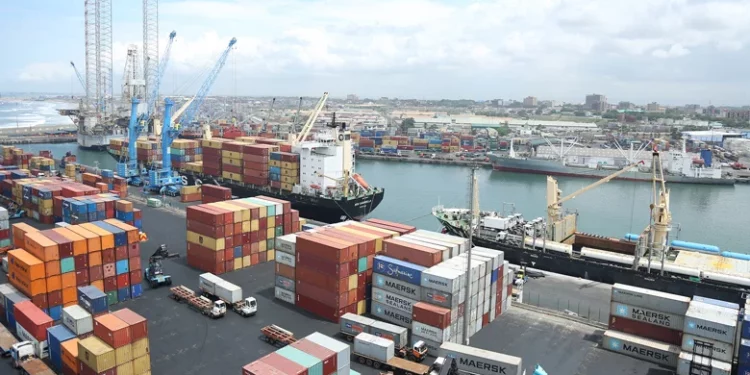State Loses Over GHS 22.6bn in Tax Revenue from Unverified Import Payments Between 2020 and 2025
Ghana is estimated to have lost more than GH¢22.6 billion in potential tax revenue between April 2020 and August 2025 due to widespread under-declaration of imports and unverified foreign exchange transfers linked to Import Declaration Forms (IDFs).
Confidential data reviewed reveal that over 525,000 foreign transfers, valued at approximately GH¢83 billion, were made abroad using IDFs during the period under review. However, only about 10,440 of those forms were ever used for actual importation of goods into the country, suggesting that nearly 98 percent of recorded transfers under the IDF regime had no corresponding imports.
The situation, according to analysts familiar with the data, reflects a major loophole in Ghana’s trade and tax administration system that may have deprived the state of billions of cedis in import duties, VAT, levies and other taxes.
Applying a conservative composite tax rate of 30 percent — covering VAT, NHIL, GETFund, COVID-19 levy, import duties and other applicable charges — the unverified transactions translate into a tax loss of at least GH¢22.6 billion. This figure excludes additional domestic tax liabilities such as VAT and corporate income tax that would have accrued on the undeclared goods.
Forex Leak and Macroeconomic Impact
Beyond revenue implications, the findings expose significant distortions in Ghana’s foreign exchange management. Data reviewed indicate that the nation may have lost up to GH¢75 billion in foreign exchange outflows during the period, exacerbating pressures on the Bank of Ghana’s reserves, particularly during 2022, 2023 and 2024, when the cedi saw its sharpest depreciations.
Between April 2020 and August 2025, an estimated US$3.8 billion was transferred annually through IDFs without evidence of corresponding imports. More than 85 percent of the transactions were denominated in U.S. dollars, while euros and British pounds accounted for most of the remainder.
Importer Breakdown and Audit Findings
A sample audit of the top 50 importers revealed under-declarations exceeding GH¢31 billion, translating into approximately GH¢9 billion in lost import taxes. Over 70 percent of these top importers were companies, while the remainder were individuals and sole proprietors. When extrapolated across all 4,213 importers captured in the dataset, the estimated total tax loss reached GH¢22.6 billion.
The data further revealed that 44 percent of the entities involved were registered enterprises or sole proprietorships responsible for GH¢13.6 billion in transfers, while 56 percent were registered companies accounting for GH¢17.3 billion. Less than one percent were diplomatic or multilateral institutions.
Suspicious Patterns and Illicit Channels
Significant anomalies were detected in the IDF records, including foreign payments without corresponding import entries, inflated invoice values with under-declared goods, and import declarations unsupported by verifiable forex transfers.
These patterns, according to intelligence sources, indicate possible cases of import tax evasion, money laundering, and abuse of the central bank’s foreign exchange allocation policy.
A separate analysis identified 1,709 importers who declared goods valued at over GH¢471 billion but transferred only about GH¢220 billion through official banking channels, leaving an unexplained gap exceeding GH¢250 billion. Many of these importers reportedly rely on informal remittance networks such as black-market dealers, WeChat transfers, cryptocurrency networks and other unregulated payment systems.
Security intelligence further suggests that proceeds from some of these transactions may be linked to the financing of illegal mining operations, locally referred to as galamsey.
Breach of Transfer Thresholds
The investigation also uncovered widespread breaches of the US$200,000 regulatory threshold, the limit above which importers are required to provide full documentation before additional transfers can be processed by local banks. Data indicate that more than 17,700 IDF applications facilitated transfers exceeding GH¢20 billion beyond the threshold in various currencies.








